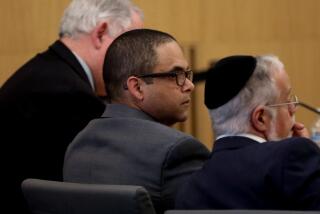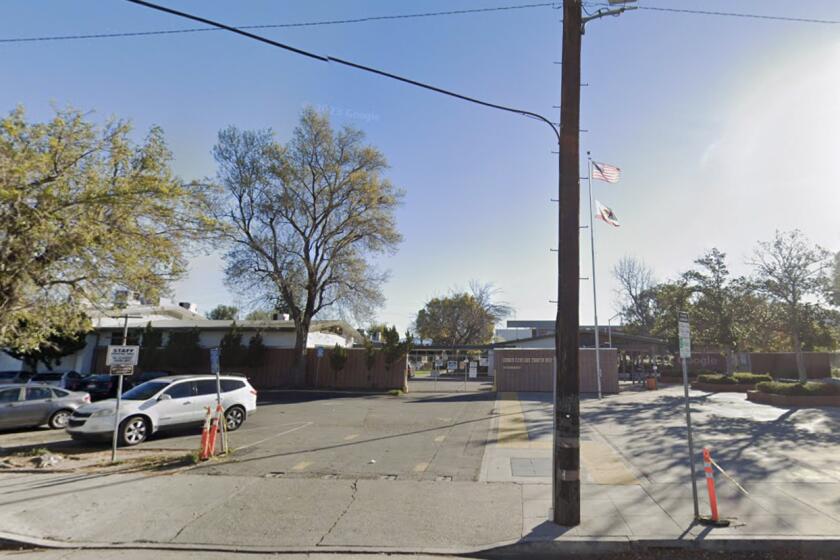Jury deliberates in ex-Guatemalan commando’s citizenship case
A jury began deliberating Monday in the case of a Guatemalan commando turned Moreno Valley martial arts instructor accused of lying about his military service on immigration forms in order to become a U.S. citizen.
Federal prosecutors have argued in a Riverside courtroom over the last week that Jorge Sosa neglected to include his time in the Guatemalan special forces unit known as the Kaibiles and, in particular, his role in the 1982 massacre in the village of Dos Eres, where more than 200 people were slaughtered.
If the jury convicts him, Sosa could face 15 years in prison and have his citizenship revoked. Sosa, who was extradited from Canada last year, has both U.S. and Canadian citizenship.
Prosecutors said Sosa did not answer two questions on an application that might have raised concerns about his moral character and his eligibility for citizenship. One asked for the applicant to list any affiliations — which, immigration officials said, would include foreign military service — and the second asked if the applicant committed any crimes for which he or she hadn’t been arrested.
“He tried to apply as a new-and-improved Jorge Sosa,” Brian Skaret, a Justice Department attorney, told the jury in his closing statements. “He wanted to apply as a different man. He wanted to run from his past.”
Skaret called Sosa a “runner,” with a history of fleeing when he faced scrutiny, most recently when he was being investigated by federal authorities and he left for Canada. “Don’t let him run again,” he said.
Although prosecutors delved into the Dos Eres massacre, including testimony from Sosa’s comrades in the Kaibiles, Sosa’s attorney, Shashi Kewalramani, argued that it was a distraction from the heart of the case.
“It’s an ex-soldier’s answers on an immigration form,” Kewalramani told the jury. “The case begins and ends with the form. That’s it.”
He disputed the portrayal of Sosa as a commanding officer by prosecutors, noting that Sosa was ranked as a sub-lieutenant and several higher-ranking officers were present at Dos Eres and the orders had come from high up, as part of a “scorched earth” policy ordering genocide. He also questioned the motivations and character of the former Kaibiles who testified on behalf of the prosecution.
Kewalramani also argued that Sosa’s errors were essentially honest mistakes.
On the question asking for affiliations, he said it was a “fair reading” to believe the question requested only social or recreational groups, since it didn’t explicitly ask for military service. On the second, regarding crimes, he contended that Sosa believed he hadn’t committed a crime at Dos Eres but was following orders issued by his commanders.
He also noted that Sosa had disclosed his military service on a previous asylum application, a document the immigration officer handling Sosa’s case would have been able to review.
Kewalramani didn’t dispute that what happened in Guatemala was an atrocity but said a courtroom in Southern California was not the place for it to be prosecuted.
“We have no jurisdiction to prosecute what happened in Guatemala,” he said. “We just don’t.”
ALSO:
Party bus death: Motorists who hit fallen passenger may have fled
Santa Monica jet crash: Crews set to reach probable victims tonight
Hearing delayed for Archie Karas, charged with cheating at blackjack
Twitter: @rarrick.rojas@latimes.com
More to Read
Start your day right
Sign up for Essential California for news, features and recommendations from the L.A. Times and beyond in your inbox six days a week.
You may occasionally receive promotional content from the Los Angeles Times.






